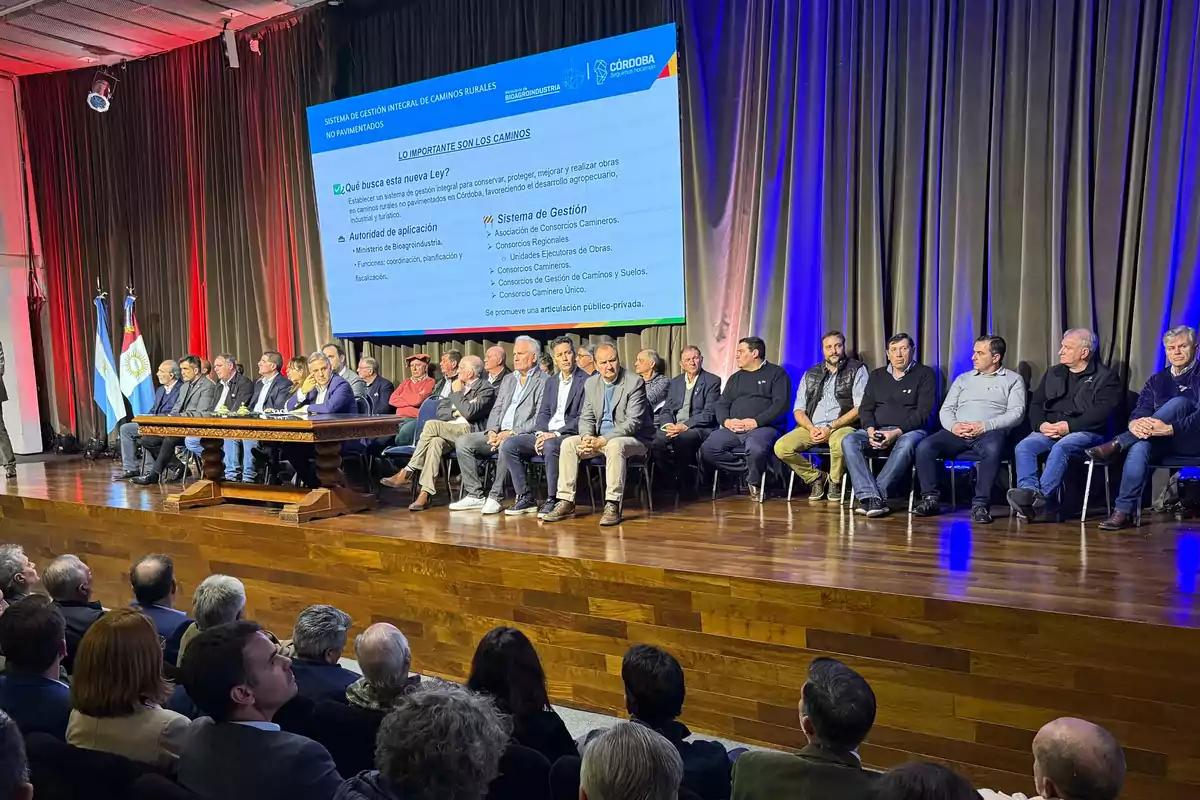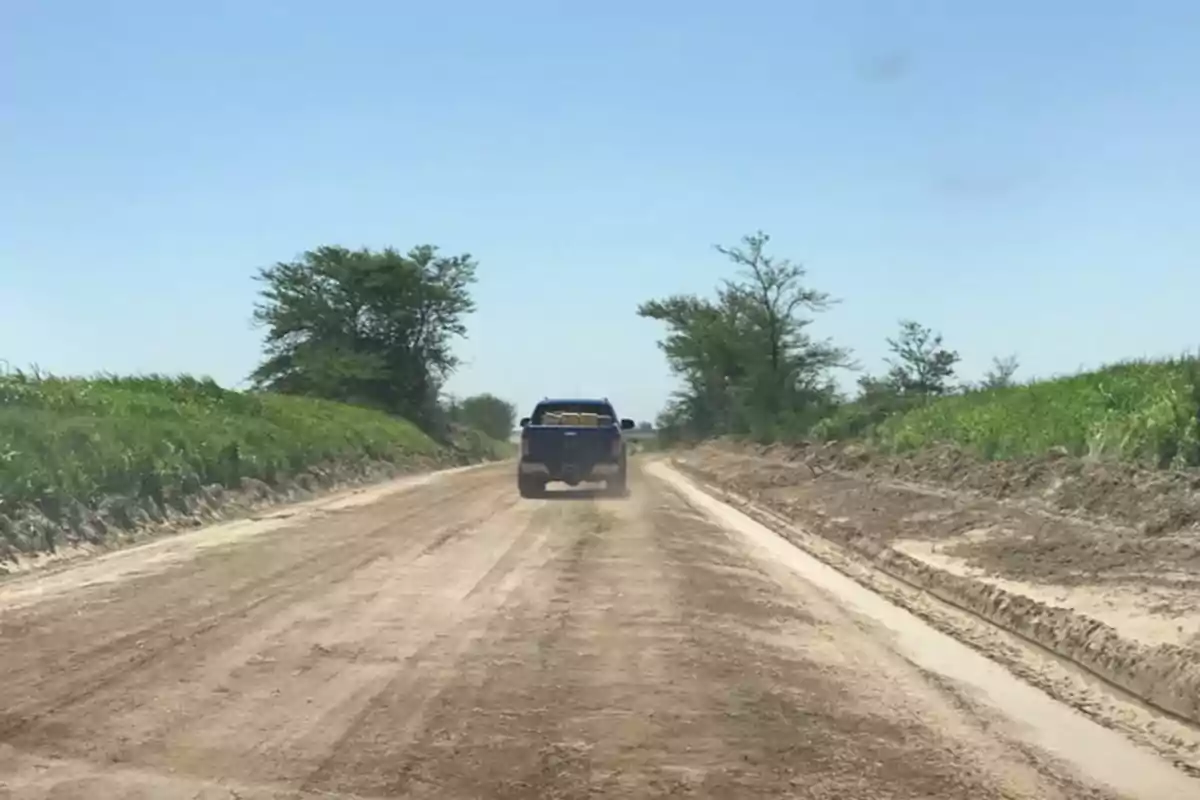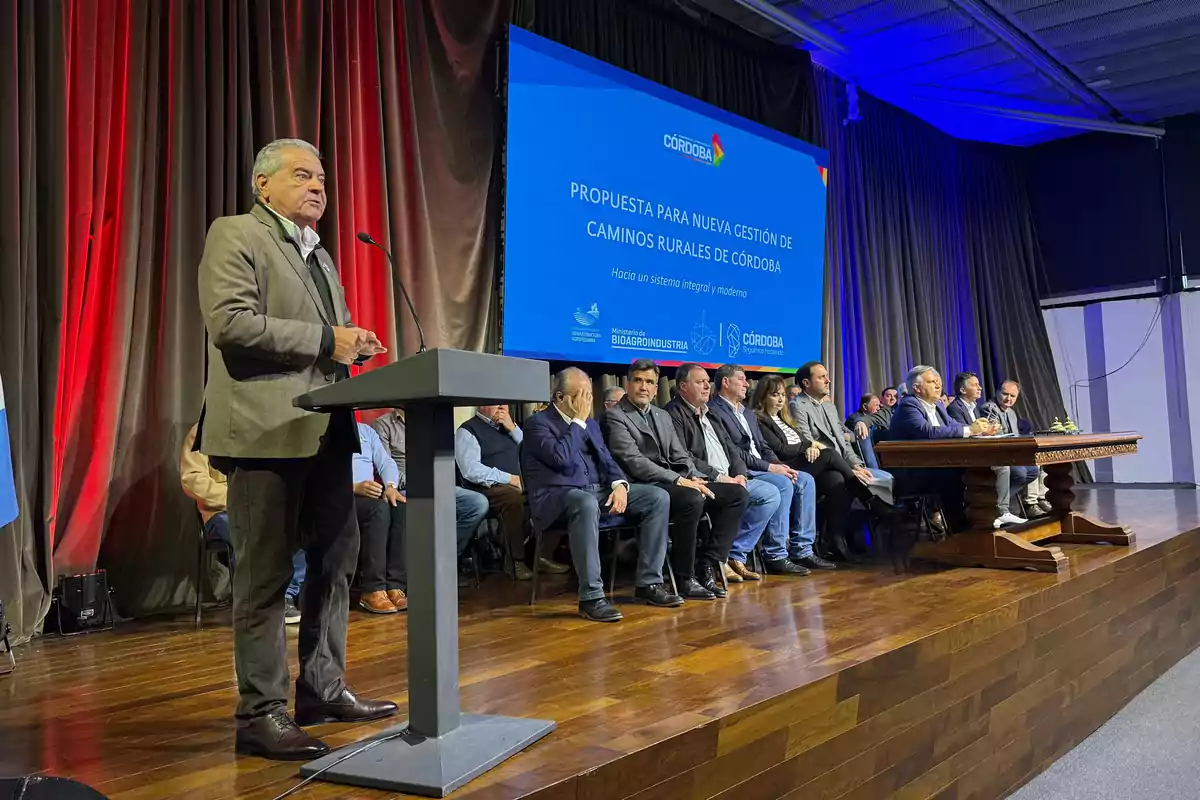
Córdoba: project for public-private management of rural roads presented
The Province and the sector entities agreed on the guidelines for a new road maintenance scheme in the interior of Córdoba
Córdoba Governor, Martín Llaryora, accompanied by the Minister of Bioagroindustry, Sergio Busso, presented at the Bicentennial Civic Center a bill that seeks to establish a comprehensive and modern management system for unpaved rural roads throughout the Córdoba territory.
Before authorities from the Liaison Board, agricultural producers, and members of the road consortia of the province, Llaryora also announced a budget increase of 9.5 billion pesos (20,944,914 pounds) for the sand surfacing of rural roads and another 3 billion pesos (6,613,110 pounds) for the acquisition of motor graders.

The governor congratulated all those responsible for the development of this project, the result of consensus and joint work.
"This law is not the law of a government, it's the law of the producers and the road consortia. I request that this law be addressed in accordance with the circumstances," said the governor.
Llaryora emphasized that "when one travels through Argentina, one of the things most often praised about Cordobans is the condition of their roads; another is their road consortia, canal consortia, soil conservation, and good practices; and that is not produced by a government, we produce it together. In Argentina, people come to Córdoba to try to imitate this model."
The project to optimize public-private management of rural roads
The project to optimize the maintenance of rural roads was developed by the Province together with sector entities.
The initiative proposes public-private coordination to preserve, protect, and improve these communication routes, with the aim of promoting agricultural, industrial, and tourism development in the provincial interior.

The text, which will be sent to the Legislature for consideration, stipulates that the Ministry of Bioagroindustry will be the enforcement authority of the future law.
It also states that the Association of Road Consortia, the Regional Consortia, the Road Consortia, the Road and Soil Management Consortia, and the Unique Road Consortium will be part of the management system.
Financing through the rural property tax
The project provides for the financing of the new scheme through the Agricultural Development Fund (FDA), which receives 98% of the revenue from the rural property tax.
It will also include income from completed works, member contributions, subsidies, donations, extraordinary resources, and fines for road damage, which will be allocated to the FDA.
Minister Sergio Busso's remarks
In his turn, the Minister of Bioagroindustry, Sergio Busso, valued the joint work with the Córdoba agro-industrial sector and recalled the Governor's decision to strengthen the Road Consortia with more resources and better equipment.
"It was a commitment made and fulfilled. We still had to create a scheme that would surpass a regulation that has been in place for a long time, where the last reform was in the 90s. We worked for more than a year on this reform project, with the Liaison Board and all the entities. With both ruling and opposition legislators. Generating a consensus proposal, because the Consortia transcend any government. The most important thing is to have good roads," he said.
Meanwhile, the president of the Association of Road Consortia, Juan José Fabbri, stated that "today is a very special day for the road consortia system. The economic contribution made by the government is essential. But what we value most is the human side we found in the Ministry of Bioagroindustry and the provincial government. They have always received us and we always get a response, and that is worth highlighting."
Meanwhile, the representative of the Liaison Board and representative of the Argentine Rural Society, Sebastián Laborde, pointed out that "rural roads are the difference between life and death; in decent education; in security and the arrival of food to the tables of Argentines. I value the Governor's ongoing willingness for permanent dialogue with the sector."
More funds for works and machinery
The budget increase announced by Llaryora for sand surfacing works on unpaved rural roads is essential for connectivity, access to schools and health centers, moving production, and generating greater productive efficiency, among other relevant aspects of daily life in the deep interior of Córdoba.
The investment of 9.5 billion pesos (20,944,914 pounds) will come from the Province's General Revenue.
Currently, 202 projects are underway to maintain and improve unpaved rural roads, with an investment of 3,801,261,544 pesos (8,384,799 pounds).
The projection for the 2024-2025 period is 243 interventions in road networks of this type.
The role of road consortia in Córdoba
Road consortia play a central role in maintaining the rural road network.
This is a unique system at the national level and is considered a pioneering public-private management model.
In the province, there are 285 road consortia grouped into 19 regional units, responsible for preserving and maintaining the province's secondary and tertiary dirt road network, totaling more than 57,000 km (35,418 miles).
Córdoba is the province with the largest rural road network under decentralized administration and organized by producers.
To support the sector, the Province delivered in 2024 a tractor and a brand-new truck with a bilateral metal tipping box to each of the 19 regional road consortia.
This represented a total investment of 5,822 million pesos (12,837,463 pounds), marking the largest investment in the last 16 years.
The Government also granted direct subsidies to the consortia, amounting to 50 million pesos (110,219 pounds), for equipment renewal.
This made it possible to acquire a variety of machinery, including 153 tractors, 13 trucks, 27 brush cutters, and more than 177 road machines such as graders, front loaders, and drag scrapers.
Present at the event were the Ministers of Government, Manuel Calvo; of Infrastructure and Public Services, Fabián López; of Production, Science and Technological Innovation, Pedro Dellarossa; the provisional president of the Legislature, Facundo Torres Lima; the president of the Unique Road Consortium, Agustín Pizzichini; the president of Cartez, Patricio Kilmurray; the president of Coninagro Córdoba, Vanesa Padules; the representative of the Agrarian Federation, José Luis Careggio; legislators, mayors, community leaders, among others.
More posts: